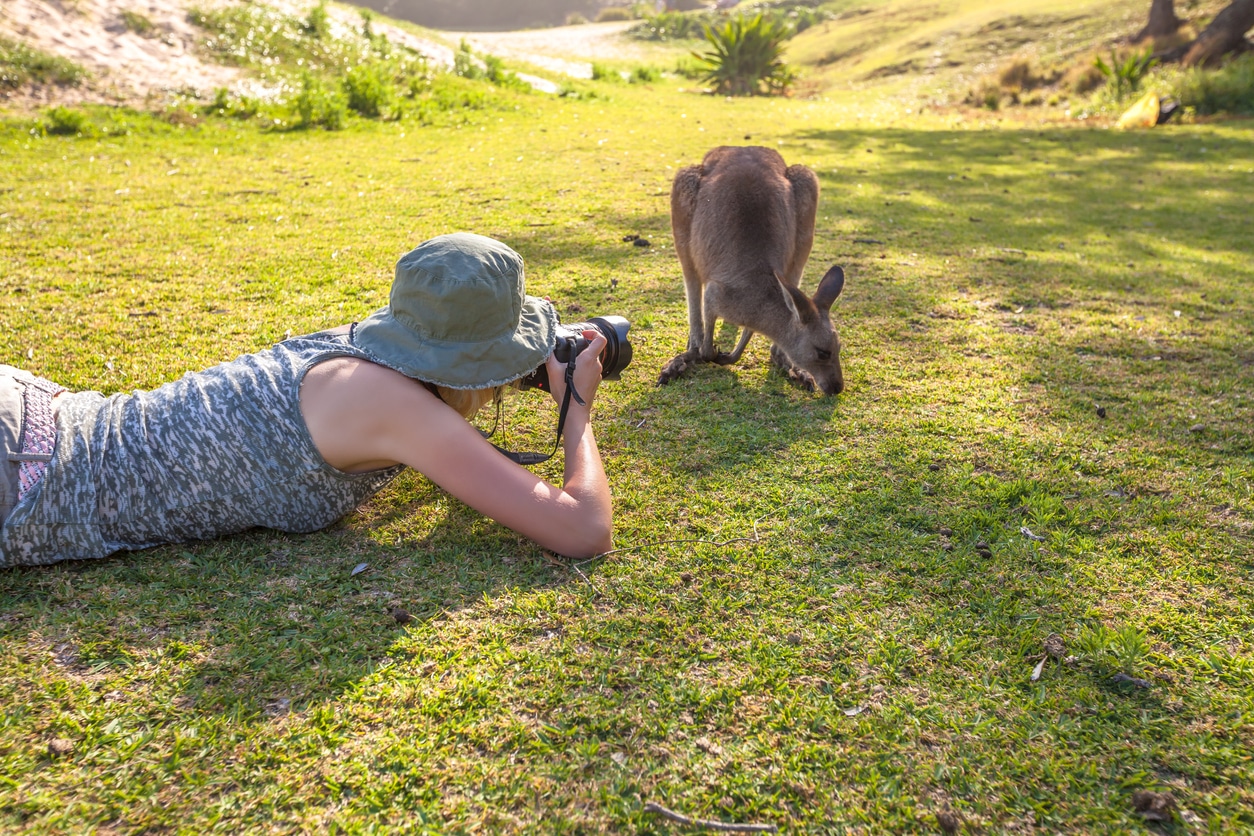Whether you’re drawn by career opportunities, a love of adventure, or the promise of a new lifestyle, relocating Down Under is both exciting and complex. This essential guide is designed to help you navigate every major aspect of expat life in Australia—from visas and cost of living to healthcare, taxes, and cultural integration. Let’s break down what you need to know to make your Australian journey a success.
2025 visa options and pathways to Australian residency for Americans
Australia offers a variety of visa options for Americans, each tailored to different goals and circumstances. Understanding your choices is the first step toward a smooth transition.
Popular visa types for Americans
- Skills in Demand (SID) sisa (subclass 482): Ideal for professionals with a job offer from an approved Australian employer. This visa can lead to permanent residency after several years.
- Skilled Independent visa (subclass 189): For highly skilled individuals who meet Australia’s points-based criteria. No employer sponsorship required.
- Partner and family visas: If you have an Australian partner or close family, these visas can provide a direct path to residency.
- Student visas: For those pursuing higher education, Australia’s world-class universities are a major draw.
- Working Holiday visa (subclass 462): Available to Americans aged 18-30, this visa allows for up to 12 months of work and travel.
Pathways to permanent residency
Many Americans living in Australia start on a temporary visa and later apply for permanent residency (PR). Common PR pathways include:
- Transitioning from a SID or skilled visa to a permanent skilled visa (Subclass 186 or 190)
- Family or partner sponsorship
- Employer nomination
💡 Pro Tip:
Visa rules and eligibility criteria can change frequently. Always consult the official Australian Department of Home Affairs website or a registered migration agent for the latest updates.
Cost of living comparisons between U.S. cities and major Australian locations
One of the biggest questions for Americans living in Australia is: How does the cost of living compare to back home? The answer depends on where you’re coming from and where you’re headed.
Housing
- Sydney and Melbourne are comparable to New York City or San Francisco in terms of rent and property prices.
- Brisbane, Perth, and Adelaide offer more affordable options, similar to mid-sized U.S. cities like Austin or Denver.
Everyday expenses
- Groceries: Expect to pay 10-20% more for basics like milk, bread, and fresh produce compared to most U.S. cities.
- Dining out: Restaurant prices are generally higher, but tipping is not customary.
- Utilities and internet: Costs are similar to the U.S., though energy prices can be higher in some regions.
Healthcare and education
- Healthcare: Public healthcare (Medicare) is subsidized, reducing out-of-pocket costs for residents.
- Education: Public schools are free for residents, but international or private schools can be expensive.
Finding employment and navigating Australia’s job market
Securing employment is a top priority for many expats living in Australia. The job market is competitive but welcoming to skilled professionals.
Where to start
- Industry demand: Sectors like healthcare, IT, engineering, and education are actively seeking skilled workers.
- Job search platforms: Seek, Indeed Australia, and LinkedIn are popular for job listings.
- Networking: Australians value personal connections—attend industry events and join expat groups to expand your network.
Work culture differences
- Work-life balance: Australians generally prioritize work-life balance more than many U.S. workplaces.
- Communication style: Expect a more informal, direct approach in meetings and emails.
💡 Pro Tip: If your qualifications are from the U.S., check if they need to be recognized or accredited in Australia, especially for regulated professions.
Australian healthcare system enrollment for U.S. expats
Australia’s healthcare system is one of the world’s best, but navigating it as an American expat requires some planning.
Medicare: Who qualifies?
- Permanent residents: Eligible for Medicare, Australia’s public healthcare system, which covers most hospital and doctor visits.
- Temporary visa holders: Generally not eligible for Medicare, but some reciprocal agreements exist (not currently with the U.S.)
Private health insurance
Most Americans in Australia on temporary visas will need private health insurance. Many employers offer group plans, or you can purchase coverage independently. Private insurance is also popular among residents who want faster access to specialists or private hospitals.
Enrolling in healthcare
- Apply for medicare as soon as you gain permanent residency.
- Compare private health plans for coverage that fits your needs and budget.
Housing market and accommodation options across Australia
Finding a place to call home is a major milestone for anyone living in Australia. The housing market varies widely by city and region.
Renting vs. buying
- Renting: Most expats start by renting. Lease terms are typically 6 or 12 months, and properties are often unfurnished.
- Buying: Foreigners can buy property, but there are restrictions and additional taxes for non-residents. Permanent residents have more flexibility.
Popular accommodation types
- Apartments (units): Common in city centers.
- Detached houses: More prevalent in suburbs and regional areas.
- Shared housing: House-sharing is popular among students and young professionals.
How to find housing
- Realestate.com.au is the main property search website.
- Inspections: In-person or virtual inspections are standard before signing a lease.
💡 Pro Tip:
Be prepared to provide references, proof of income, and a rental history—Australian landlords are thorough!
Managing finances, taxes, and budgeting as an American in Australia
Financial management is a unique challenge for Americans living in Australia, especially when it comes to taxes.
Banking and currency
- Open an Australian bank account as soon as possible. Major banks include Commonwealth Bank, Westpac, ANZ, and NAB.
- Currency exchange: The Australian dollar (AUD) fluctuates against the U.S. dollar, so monitor rates for large transfers.
Taxes: Dual filing requirements
- U.S. tax obligations: As a U.S. citizen, you must file a U.S. tax return every year, even while living abroad. This includes reporting worldwide income.
- Australian taxes: If you’re a tax resident in Australia, you’ll also file an Australian tax return. The tax year runs from July 1 to June 30.
- Double taxation relief: The U.S.-Australia tax treaty and credits like the Foreign Earned Income Exclusion (FEIE) can help prevent double taxation, but the rules are complex.
Budgeting tips
- Track expenses in both currencies to avoid surprises.
- Plan for superannuation (retirement savings), which is mandatory for most employees in Australia.
Getting around Australian cities
Australia’s cities are known for their efficient and accessible transportation systems, making it easy for expats living in Australia to get around.
Public transport
- Sydney, Melbourne, Brisbane, and Perth have extensive train, tram, and bus networks. Tap-and-go cards (like Opal in Sydney or Myki in Melbourne) make payment easy.
- Regional areas: Public transport is more limited, so a car may be necessary.
Driving in Australia
- U.S. driver’s licenses are valid for a limited time (usually 3 months). After that, you’ll need to obtain an Australian license.
- Remember: Australians drive on the left side of the road!
Cycling and walking
- Many cities are bike-friendly, with dedicated lanes and shared paths.
- Urban centers are walkable, especially in downtown areas.
💡 Pro Tip:
Consider proximity to public transport when choosing where to live, especially if you don’t plan to drive.
Cultural adaptation and integrating into Australian society
Adjusting to a new culture is both rewarding and challenging for U.S. citizens in Australia. Embracing the local way of life will help you feel at home faster.
Social customs
- Aussie slang: Australians love their unique expressions—don’t be afraid to ask for translations!
- Friendliness: People are generally open and informal, but respect for personal space is valued.
Community and activities
- Join local clubs, sports teams, or volunteer groups to meet people and build connections.
- Celebrate U.S. holidays with expat groups, but also embrace Australian traditions like Australia Day and ANZAC Day.
Overcoming homesickness
- Stay connected with family and friends back home through regular calls and visits.
- Explore your new surroundings—Australia’s natural beauty and vibrant cities offer endless opportunities for adventure.
Remember, every expat journey has its ups and downs. Give yourself time to adjust, and don’t hesitate to seek support from fellow Americans living in Australia.
Ready to make your move? Get expert tax help for Americans living in Australia
Relocating to Australia is a life-changing adventure, but managing your finances and taxes as an American living in Australia can be daunting. Don’t let tax worries hold you back from enjoying your new life Down Under. Our team of expat tax specialists is here to guide you every step of the way—so you can focus on what matters most.
Frequently Asked Questions
-
What are the best visa options for Americans living in Australia in 2025?
The best visa depends on your goals. Skilled professionals often use the SID (Subclass 482) or Skilled Independent (Subclass 189) visas. Partner, family, student, and working holiday visas are also popular pathways.
-
How does the cost of living in Australia compare to the U.S. for expats?
Major Australian cities like Sydney and Melbourne are similar to New York or San Francisco in cost, especially for housing. Groceries and dining out are generally more expensive, but healthcare and education can be more affordable for residents.
-
Do Americans living in Australia need to file U.S. taxes?
Yes. U.S. citizens must file a U.S. tax return every year, reporting worldwide income, even while living in Australia. You may also need to file an Australian tax return if you are a tax resident there.
-
Can Americans access Australia’s public healthcare system?
Only permanent residents are eligible for Medicare. Most Americans on temporary visas need private health insurance until they gain residency.
-
What’s the process for finding a job in Australia as an American?
Use job search platforms like Seek and LinkedIn, network locally, and ensure your U.S. qualifications are recognized in Australia. Focus on industries with high demand for skilled workers.
-
Is it difficult for Americans to buy property in Australia?
Non-residents face restrictions and extra taxes, but permanent residents have more options. Most expats start by renting before considering a property purchase.
-
How do Americans living in Australia manage transportation?
Major cities have excellent public transport. U.S. driver’s licenses are valid for a short period; you’ll need to switch to an Australian license for long-term driving.
-
How can Americans adapt to Australian culture?
Get involved in local activities, learn Aussie slang, and connect with both locals and fellow expats. Embrace new traditions while staying connected to your roots.

 Connect on LinkedIn
Connect on LinkedIn

